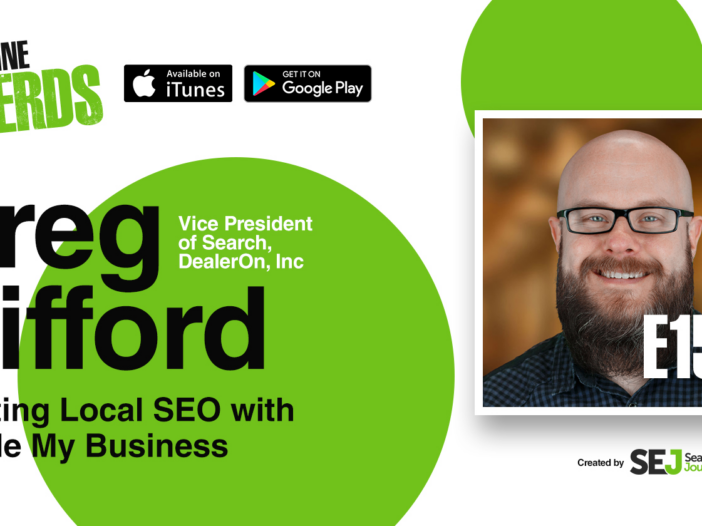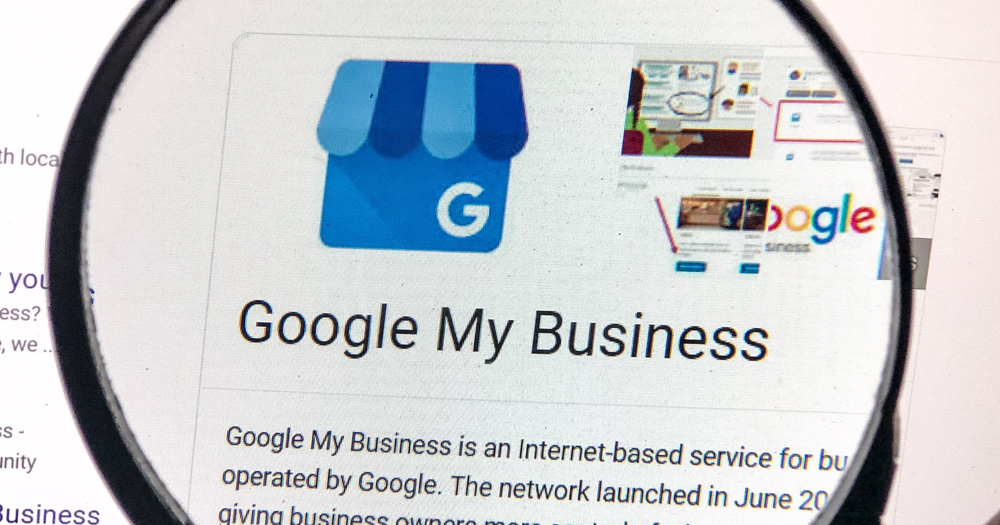
Join us in analyzing 3 case studies that show the importance of driving brand search behavior and engagement, and how to do it in months, instead of years.
Maximize your SEO efforts in 2024 with insights on Google’s SGE, algorithm updates, and expert tips to keep your site ahead.
Download this guide and learn how to optimize and manage Google Performance Max campaigns, with expert insights and actionable strategies to ensure your campaigns are effective.
Join us in analyzing 3 case studies that show the importance of driving brand search behavior and engagement, and how to do it in months, instead of years.
Join us in analyzing 3 case studies that show the importance of driving brand search behavior and engagement, and how to do it in months, instead of years.
Join us as we dive into exclusive survey data from industry-leading SEOs, digital marketers, content marketers, and more to highlight the top priorities and challenges that will shape the future of search in 2025.
Greg Gifford talks about boosting local SEO with Google My Business, some of the new features to look into, and the tricks that will help you get ahead.
Podcast: Download
Subscribe: Apple Podcast Google Podcasts Spotify
In episode 152 of Search Engine Nerds, I had the opportunity to interview Greg Gifford, a world-renowned Local SEO expert.
Gifford talks about Google My Business, some of the new features to look into, and the tricks and hacks that will help you get ahead.
Greg Gifford (GG): It’s massively important, especially because most people that concentrate on local SEO are really looking at that map pack with the map and the three results underneath.
According to the Local Search Ranking study that just came out at the end of last year, the biggest chunk of signals that matter for showing up in that map pack is stuff related to Google My Business.
It’s not as important for showing up in the localized organic, but it’s still important.
The main thing that I’ve been talking about for the past six months at conferences that I try to get across to people is your website is no longer your first impression with customers, it’s your Google My Business.
We’re saying that your Google My Business profile, that knowledge panel that shows up whenever you Google the name of your business, that’s your new home page.
And you see all these different conference presentations lately talking about zero-click search, where you get all of this traffic and all of these interactions without people going to your website – the best example of that is Google My Business.
All the people that used to go to your website to get your phone number or your address, get directions, check out pictures of your business or read testimonials, they can see all of that in your Google My Business profile.
There’s no need to go to your website anymore.
Brent Csutoras (BC): The important thing to remember is that… you should be really looking at, “how do I perform anywhere?” And I think that Google My Business definitely has that. Do you see it continuing in that way?
GG: 100%.We all know that Google has, years ago, moved to just keywords to keyword matching, and now it’s an entity-based search platform.
Your Google My Business is a direct interface with your entity as it exists in Google’s database…
It’s crazy how many businesses out there still haven’t claimed their listing. And so, you need to:
It’s just a no-brainer that it’s only going to continue to be one of the most important elements of showing up in local searches.
GG: It depends on the vertical. Like, you know, I work pretty much with car dealers, almost exclusively, and car dealers are always going to need a website.
When you’re buying the second biggest purchase of your life, you’re going to want that website with that information so you can go in and do your research and figure out what you want.
But, if you’re buying toilet paper, you don’t really need a website. Especially with voice assistance, you’re just saying, “Hey, Alexa. Hey, Google. Buy me more toilet paper.”
I always look at it too, what do I do when I travel? Because I travel to all these conferences and I can’t tell you the last time I went to a restaurant’s website.
Now, they all have websites, but does anybody really go to restaurant website anymore?
Because, all you have to do is do a search, and you’re either looking them up on Yelp or Google.
Then you’re getting all of that top-line entity information from their Google My Business profile, and you can view their menu and do all of these things – even book a table without ever going to their website.
So, I think for certain verticals, we really are approaching a time where, yeah, you probably need a website if people want to really go and check you out.
But for that really top-level, fast-touch stuff, people aren’t ever going to go to your site. They’re just going to look at you on Google.
GG: It’s more convenience factor and it just depends on the industry. I think everybody’s probably mostly going to still have a website for the foreseeable future.
It’s just that, I think you have to realize that a lot of that interaction is going to happen off of your website, and that’s why Google My Business is so important.
GG: Obviously, you’ve got to fill out all the top-line information about your business. That would be:
Make sure all these are correct.
And then make sure you’ve got the right categories chosen. It’s really important that you pick the right categories that matter for your business.
You’ve got to upload photos. You can upload videos – you don’t have to – but I definitely suggest it.
And then that’s where all of your reviews live on Google. That’s a massively important feature that every business should pay attention to because that’s going to not only have an effect how you show up and where you’re ranked, but it has an effect on whether customers are going to want to come to you.
You know, you could be the third-ranked thing in the map pack, but you’ve got twice as many reviews, and a much better review score, then people are probably more likely to click through to you or call you in that situation.
And then now we’ve got the new questions and answers feature, which is actually pretty scary, because most business owners don’t know about it and it shows up right under your top line information.
It allows anyone in the community to ask a question to your business, and the scary part is, anyone in the community can answer that question.
You see all these questions that are coming in from customers or potential customers, that just assume that the business is paying attention.
And the business isn’t, and some random jackal in the community is coming in and putting a snarky answer.
So, that’s a whole kind of customer service and reputation side of things that’s really scary right now for a lot of businesses.
BC: A lot of people don’t pick the right categories, right?
GG: You’ve got ten slots for categories and a lot of people are going to go in and just try to fill them up with the wrong ones. Also, there are all these categories that typically will apply to different verticals that they’re not necessarily choosing.
Another big thing is your primary category – the first one that you choose – carries more weight. So, you want to be strategic in what you’re putting there if you’re a business that has multiple categories.
I just did a video recently and talked about the fact that if you’re a Ford dealer and you’re in a really crowded market like Dallas, you probably want to put Ford dealer as your primary category, because you’re competing against 15-20 other Ford dealers in the whole metro area.
But, if you’re a Ford dealer in the middle of nowhere in Wyoming and there’s not another Ford dealer for 100 miles in any direction, you’d probably want to put used car dealer as your primary category, because that’s where you’re really fighting against all of your local competition.
There’s a lot of intricate pieces like that, that it’s really important to know. If you don’t have a marketing person working with you, most small business owners just have no clue.
GG: Bad reviews aren’t actually a bad thing.
A lot of research points to the fact that you want your review score to fall between a 4.2 and a 4.5, because if you’ve got a perfect five-star review rating, people almost kind of just assume that it’s fake reviews.
Everybody knows nobody is perfect… It’s not really bad to have a bad review, it shows that you’re human and what matters is how you respond to that review.
But, what’s really important is don’t be scared to ask everybody for a review, because I talk to businesses all the time, you know, in every vertical and they’re like, “We don’t want to ask because that means we’ll get more bad reviews.”
The ask is what’s really important. You’ve got to ask every single customer and then you have to make it really easy for them to leave a review.
You don’t want people to have to figure out how to go to Google and do it. Typically you want to set up a page on your site. It would be yourdomain.com/reviews that every employee knows.
That page has simple messaging that says, “Hey, we appreciate your business. Let us know how we did.”
Then it lists out the different options where they can leave reviews. So, you’ve got Google, Facebook, Yelp and all the other review sites that might matter for that vertical.
That way it’s really easy to ask and tell them where to go. You’re much more likely to get a lot of positive reviews.
GG: I would say both Google Posts and Question and Answers. Both of them are fairly new and really important to help you stand out from competitors.
As far as Google Posts go, it’s something where you can put up a little post and it shows up as a thumbnail image at the bottom of your profile that people can click on and it enlarges the image and you get more text.
I would suggest every business out there do at least one post a week. The post will last for seven days and then disappear.
I already mentioned Questions and Answers earlier. It shows up just below your top-line info and you can load in your own questions.
Check out Greg’s conference presentation decks on SlideShare.
Visit our Search Engine Nerds archive to listen to other Search Engine Nerds podcasts!
Image Credits
Featured Image: Paulo Bobita
Managing Partner / Owner at Search Engine Journal with over 18 years experience in Digital Marketing, specializing in Reddit, Search …
Conquer your day with daily search marketing news.
Join Our Newsletter.
Get your daily dose of search know-how.
In a world ruled by algorithms, SEJ brings timely, relevant information for SEOs, marketers, and entrepreneurs to optimize and grow their businesses — and careers.
Copyright © 2024 Search Engine Journal. All rights reserved. Published by Alpha Brand Media.